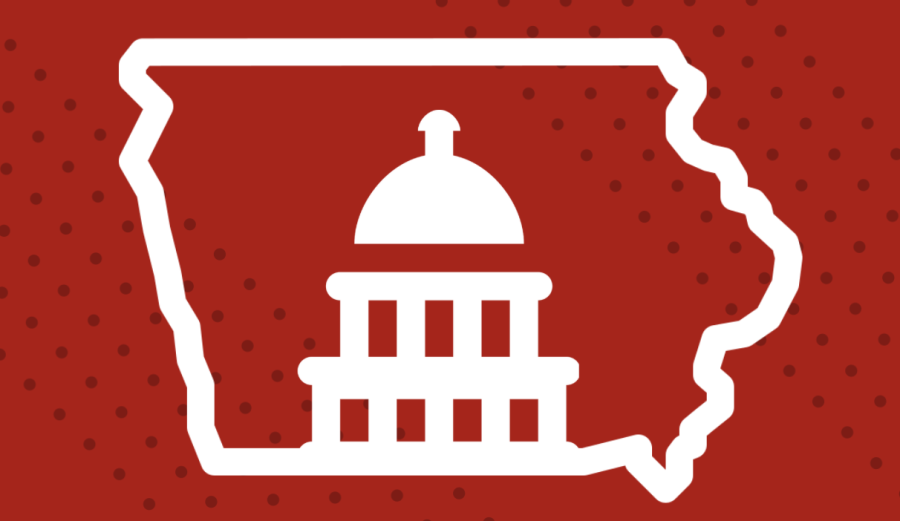The gavel banged at 10 a.m. on Jan. 9, 2023 to signal the start of the new Iowa legislative session. This is the seventh consecutive year that Republicans have maintained control of the Iowa Senate, House, and Governor’s office. In addition, Republicans gained a supermajority in the Senate in the recent midterm elections.
In previous years, many policies by the Kim Reynolds administration have been controversial: sending kids back to school amid the COVID-19 pandemic, abolishing the mask mandate and banning transgender women from competing in men’s sports.
However, there are two sides to every coin. Reynolds won her reelection by over 225,000 votes, a response that attests to Reynolds’ policies and initiatives.
Senior Aden O’Donnel, is one of those that support the Reynolds administration. “I think the governor has done a great job with her initiatives and her leadership in running the state.”
Governor Reynolds gave her condition of the state address on the evening of Jan. 10, 2023. She opened her speech with the successes of Iowa and Iowa’s ranking as the number one state in the nation for opportunity. Proceeding with the accomplishments of Iowa and citing news media hypocrisies regarding some of her controversial moments, she spoke on what Iowans can expect for the coming term.
Reynolds touched on Iowa’s new flat tax rate: Income will no longer determine income tax contributions in Iowa. All Iowans will pay a flat income tax of 3.9%, and Iowans will no longer pay tax on their retirement income.
Perhaps the key talking point of the night was the governor’s new education agenda. “[Education] starts by making sure that every family can make the choice that this teacher and mother made: to send their child to the school that best fits their needs,” Governor Reynolds stated. “Every child is an individual who deserves an education tailored to their unique needs, and parents are in the best position to identify the right environment.”
The school choice bill introduced in Congress will provide state funding for both children attending public and private schools. The state will contribute $7,598 to education accounts per student, whether public or private. Reynolds stated, “No child will be limited by income or zip code.”
Governor Reynolds explained the success of education test scores, but schools that consistently test below par will now receive individually tailored attention from the Department of Education to ensure support for teachers and administrators.
The governor moved on to discuss postsecondary education. She explained that the state of Iowa recognizes that a four-year college postsecondary plan does not incorporate everyone’s desires or interests. Reynolds cited Iowa’s highest number of new apprenticeship programs in the country, promising more apprenticeship programs around the corner.
In a Conservative fashion, Reynolds also cited that the government will step back and give more freedom to schools. “Improving our education system isn’t just about providing more resources; sometimes it’s about getting out of the way,” Reynolds continued. “Iowa code contains a long list of requirements that schools must follow. Many of them are beneficial; some are absolutely necessary, like those protecting parents’ rights. But other requirements are too burdensome. I’ve heard from teachers and administrators that it’s too much. I hear you, and I agree.”
Iowa will eliminate monotonous reporting requirements and expand on schools’ ability to capitalize on dual enrollment opportunities, as well as the freedom of schools to increase the salary of teachers. Reynolds noted, “Let’s focus on ensuring we reward those teachers who work hard to make a difference in our children’s lives.”
Due to the vast majority of Republican House and Senate members, Governor Reynolds’ plan will undoubtedly pass and be implemented for Iowa in the coming months and years.









